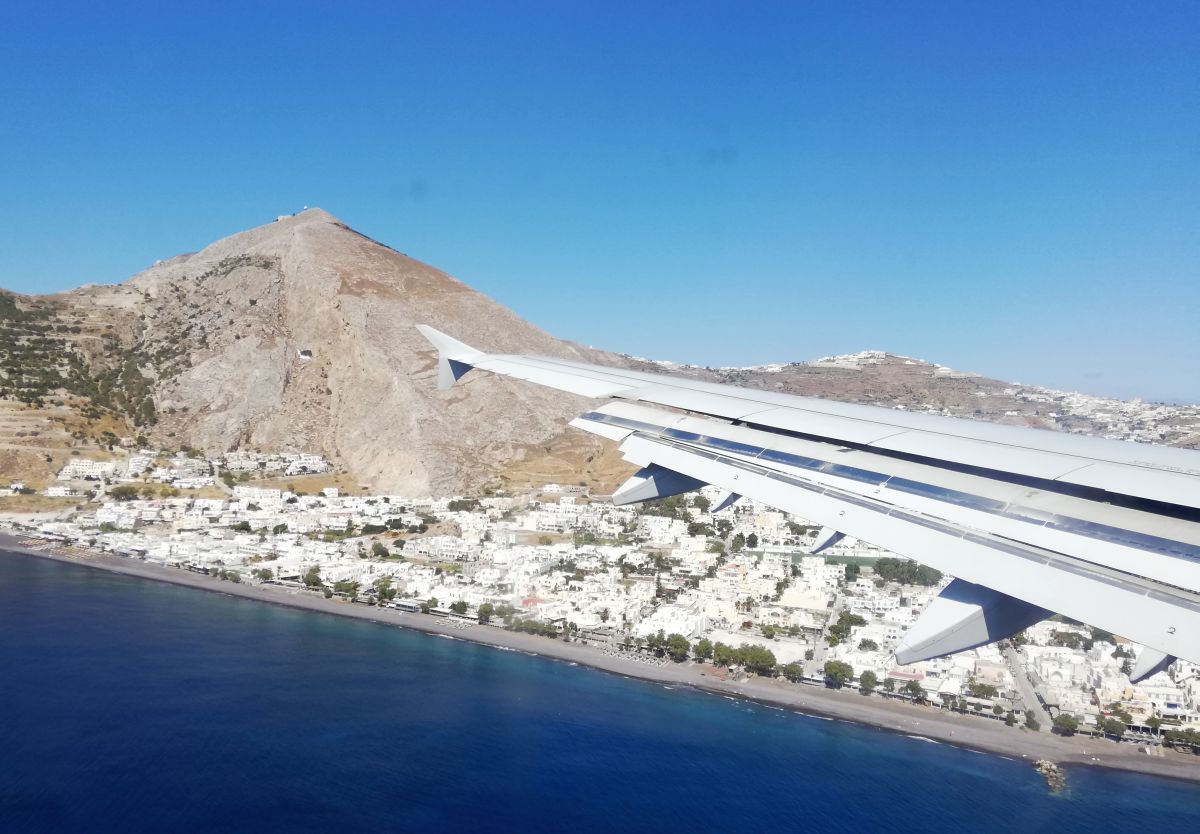Covid-19 Rules for Travel to Greek Islands by Plane Get Extension
The Greek authorities on Saturday issued an aviation directive (NOTAM) that extends the rules for passengers traveling from the mainland to the Greek islands on domestic flights.
The directive, issued by the Hellenic Civil Aviation Authority (HCAA), extends the travel rules until August 9 at 6am and is part of the Greek government’s efforts to curb the spread of the coronavirus (Covid-19) in the country.
According to the HCAA’s updated NOTAM, people in Greece (residents and foreign visitors) are allowed to travel to the Greek islands by airplane only if they have one of the following:
1) a vaccination certificate stating that 14 days have passed since full vaccination for Covid-19.
Greeks can issue their vaccination certificates here.
Foreigners are obliged to have a vaccination certificate in one of the following languages: English, French, German, Spanish, Italian or Russia. The vaccination certificate must be issued by a public authority, include the travelers’ name, the type of vaccine administered and the number of doses.
Alternatively, travelers may present, in digital or printed form, an EU Digital COVID Certificate, as proof that a person has been vaccinated against Covid-19 or received a negative test result (48-hour rapid test or 72-hour PCR) or recovered from the coronavirus.
2) a negative PCR test performed less than three days (72 hours) prior to the scheduled travel date or a negative rapid antigen test taken 48 hours prior to travel. Foreigners must have a negative test in one of the following languages: English, French, German, Spanish, Italian or Russian. (The rule is in force for travelers over the age of 12.)
Negative PCR test results can be in print or electronic form.
3) a recovery certificate. Travelers can present a medical/recovery certificate issued thirty days after they first tested positive for Covid-19 (the certificate is valid for entry to Greece 180 days after its issue date). The certificate must be issued by a public authority or a certified laboratory in one of the following languages: English, French, German, Italian, Spanish or Russian. (The rule is in force for children over the age of 12.)
According to the HCAA, tests (PCR and rapid) that have been carried out abroad and are valid at the time of boarding a domestic flight in Greece will be accepted under the same conditions under which they were accepted to allow entrance to Greece.
For travelers aged 12-17
Passengers that belong to the 12-17 (born after July 1, 2009) age group can alternatively present a negative self-test result for Covid-19 to board a domestic flight to travel to the Greek islands from the mainland.
The self-test must be taken 24 hours prior to travel. Travelers aged 12-17 must access the self-test declaration form here, print it out, write their negative test result, sign it and then present it when requested at the airport.
The staff of airline companies will be responsible to check that passengers are carrying the required documentation during boarding.
Returning to the mainland from the islands
All passengers over the age of 12 (with date of birth after July 1, 2009) returning to the mainland (e.g. back to Athens) from an island are recommended to conduct a self-test and fill out the declaration form found here (in English and Greek).
General instructions
At the arrival and departure areas inside airports, as well as during all domestic and international flights, staff and passengers are required to wear a face mask at all times.
Passengers are also required to comply with the instructions of the permanent and temporary staff of airports or airlines responsible for supervising, crowd management and passenger assistance, in order to maintain the necessary distances and to ensure safe boarding/disembarkation to avoid overcrowding.
The Greek government has detailed information on a dedicated website, which includes frequently asked questions, on how Greece is welcoming visitors this year.
Travelers in need of information regarding specific details are recommended to contact their embassy, airline or the General Secretariat for Civil Protection.








I think it’s a great idea with the restrictions in order to lower the risks. However it would be great if the COVID control in the airports was taken seriously. When I arrived in Kos nobody cared to see either my entry form or my corona passport / proof of being fully vaccinated. And it was the same for more or less all passengers from my flight. We where not even checked when we left our own country. Then why have the restrictions if they don’t apply?
If you have had both vaccines and show negative – why are some countries not allowed into Greece … Phizer is Phizer no matter what country you are from …. So its seems Greece has a bias against some countries – That is Not ON
Dear Sir/Madam,
We are a family of four, two parents and two kids under the age of 12, we are on a holiday in Crete Island and have plans to go back to Athens on the 2nd of August. We the parents have been fully vaccinated about two months ago and we have the vaccination certificate the quetio is do we need to take a PCR test for the flight back to Athens?
Hi,
When returning to the mainland from the islands, passengers are “recommended to conduct a self-test and fill out the declaration form…”. That means that the self-test is not compulsory, correct?